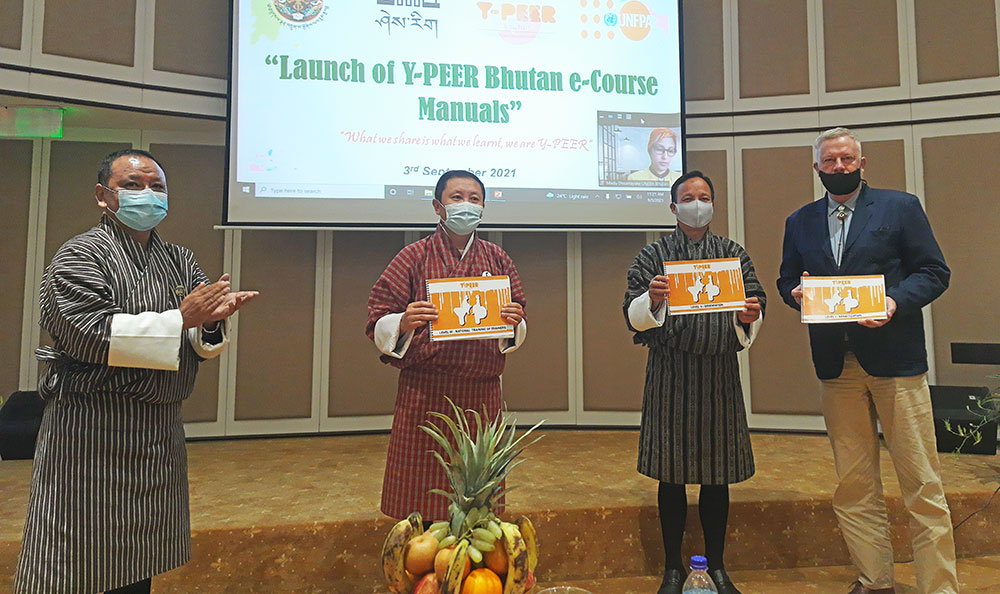Chhimi Dema
The Department of Youth and Sports (DYS) launched an online course for a youth-led initiative focusing on educating and advocating youth on adolescent reproductive and sexual health called Youth Peer Education Network (Y-PEER).
As part of the course, three manuals on sensitisation, orientation and national training of trainers were launched. The manuals are categorised into three levels.
Y-PEER Bhutan’s in-charge, Rangjung Dorji, said Y-PEER Bhutan, with support from DYS and UNFPA, developed the course.
There are more than 3,000 Y-PEER members in the country today in 19 colleges and institutes.
Y-PEER is a global youth movement established in more than 90 countries and was created by UNFPA International. In Bhutan, it was established in 2012 to promote youth participation and development under the purview of DYS.
Rangjung Dorji said that the e-course covers topics of sexual health and rights (SHRS) and includes skills development avenues in public speaking, communication and team building. “It also highlights various issues that affect young people.”
Interested youth can participate in the e-course that would be held on online platforms like Zoom. Two pilot projects were carried out. The third e-course programme will be conducted this month.
Fourteen core members of the network developed the manuals that will serve as a standardised curriculum for all the 19 networks in the country.
Rangjung Dorji said after completion of the course, an individual would be well equipped to help a peer in issues related to SHRS and other youth-related issues.
He said that since it was more likely for youth to listen to youth than others, there were potential to make a difference in a peer’s life.
Being a Y-PEER member, Rangjung said, he could explore and get information on various topics that the Y-PEER focuses and advocates on. “The support that we require is trust in the youth so that we can be the change that we want to see in the world.”
Y-PEER Bhutan, during their advocacies, covers topics on vulnerable youth, sustainable development goals, HIV and AIDs, sexually transmitted diseases, teenage pregnancy, substance abuse, addiction and peer pressure.
Y-PEER also designs and conducts sessions on LGBTQA+, gender sensitivity, teamwork, volunteerism, civic engagement, stigma and discrimination.
A recent graduate and a member of Y-PEER, Ayeshwini Lama, said that she has developed skills and went through a lot of personality development as a member of Y-PEER.
“I enhanced my leadership skills by being able to train and educate other young people on issues of SRHR,” she said.
Ayeshwini co-founded two mental health and sharing positivity campaigns to provide mental health support in times of Covid-19. “The activities helped me grow and learn more. Y-PEER provides a greater platform not to just learn how to be a leader but become a leader.”
Edited by Tashi Dema


